Facebook battles to stay young and cool
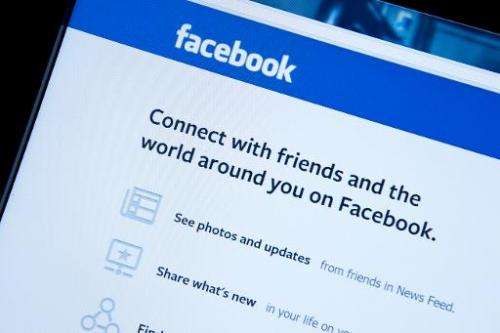
Sixteen-year-old Owen Fairchild doesn't hang out at Facebook as much as he did when he was just a kid.
It is not that he and his friends are abandoning the social network. They are spreading their love to rival networks like Twitter, Pinterest, SnapChat, Instagram and blogging platform Tumblr.
"I've moved on," the teenager said. "I go to Tumblr a lot more; there is a lot of funny stuff. SnapChat is super-fun because you can send really unattractive pictures of yourself and they will delete after a few seconds."
Contrary to what grownups might think, teens sometimes prefer to catch up on life face-to-face in the real world, he added.
"I think Facebook is still very popular even though some people might be losing interest," said the 11th-grade student at Alameda Community Learning Center, a charter school in Alameda across the bay from San Francisco.
"There is no talk among my friends saying Facebook is for old people."
Facebook, born on a college campus a decade ago, has grown to 1.23 billion active users worldwide.
But as it prepares to celebrate its 10th anniversary, Facebook is now facing challenges in keeping its original base of young users as new social networks vie to be the coolest on the Internet.
A social networking trend set in motion by Facebook has been accelerated by soaring popularity of smartphones that let people share images, videos, thoughts or observations at any moment.
Hot young services such as Pinterest, Twitter and SnapChat have sparked concerns that Facebook is losing teens and may follow predecessor MySpace into social networking obscurity.
Facebook's demographics appear to be shifting as adults, even seniors, use the network to catch up with long-lost friends and stay connected to family and colleagues.
Princeton University student Susannah Sharpless said she and friends have stopped letting Facebook consume their lives.
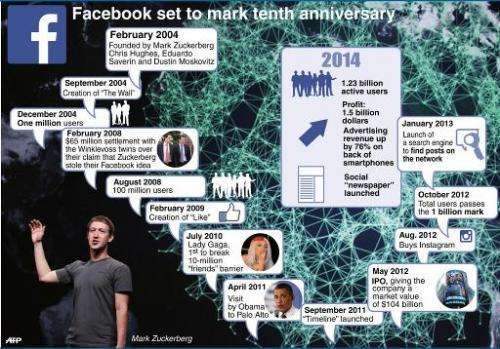
"Everyone in my friend group went through this stage where we hated Facebook and deleted it," Sharpless told AFP.
"I was one of the first people to get it back. Slowly, everyone did."
Breaking from Facebook served as a detox period during which she and friends got a better handle on what was a daily habit, the college junior said.
"I realized how to live without the mindless Facebook stalking that I used to do," Sharpless said.
"I check my Twitter feed all the time; there is nothing that I definitely need to know on Facebook."
She also finds more interesting fare on Instagram, which Facebook bought about two years ago in a billion-dollar deal.
"Facebook isn't done," Sharpless said. "I think it is just changing in the way people use it."
Social media network analytics company Socialbakers on Thursday posted findings indicating that "the sky is not falling" when it comes to Facebook's appeal to the younger set.
Interactions at Facebook by people ages 13 to 24 grew about 29 percent last year, according to Socialbakers.
"Teens are definitely not leaving en masse as some reports would have you believe," Socialbakers data specialist Ben Harper said in a blog post.
During an earnings call this week, top Facebook executives sidestepped a question about whether the social network was losing teens.
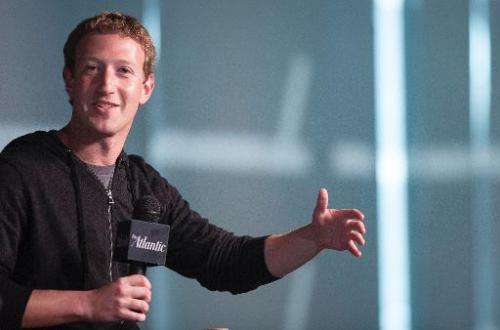
"We are working on great products that all our users, including teens, will take seriously," said Facebook chief financial officer David Ebersman.
Forrester Research analyst Nate Elliott dismissed Facebook gloom-and-doom talk as "silly." He argued that, unlike the defunct MySpace, Facebook innovates relentlessly and copies winning features from competitors.
For example, Facebook has woven Twitter-style real-time status updates into the service and introduced a new mobile app aimed at becoming a social newspaper of sorts.
Young people might change how they use Facebook, but they aren't leaving, according to the Forrester analyst.

"It is not a zero-sum game," Elliott said. "You don't stop using one network because you start using another."
Forrester is preparing to release results of a youth survey that the analyst said contradict the "breathless proclamations of doom" about Facebook.
"When you strip away the hyperbole and just look at the numbers, Facebook is absolutely crushing all the other social networks in terms of young users who go there," Elliott said.
Independent Silicon Valley analyst Rob Enderle countered that some studies in recent months indicate young people are departing Facebook in a shift that should worry the social network.
"The youth is your seed corn to make sure your service grows; they drive something like this," Enderle said. "The trendy kids at school need to be at Facebook."
Facts and figures about Facebook
Facts and figures about Facebook, which is celebrating its 10th anniversary in February:
- Facebook had 1.23 billion monthly active users at the end of 2013, based on company data, or roughly one-sixth of the world's population. Some 945 million of the users were accessing Facebook on mobile devices.
- The biggest market for Facebook is the United States, with 146.8 million users in late 2013, according to the research firm eMarketer. Next was India (84.9 million), Brazil (61.2 million) and Indonesia (60.5 million). Other estimates show the number of US users is higher, possibly 180 million. Facebook does not release detailed user statistics but said 81 percent of its daily active users are outside the US and Canada.
- In 2013, Facebook was used by 46.6 percent of the population in North America, 35.7 percent in Western Europe, 29.9 percent in Latin America, 24.9 percent in Central and Eastern Europe, 11 percent in the Middle East and Africa and 7.1 percent in the Asia-Pacific region, according to eMarketer.
- Facebook reported its profit for the full year 2013 jumped to $1.5 billion from just $53 million in 2012, and revenues increased to $7.87 billion from $5.1 billion. Most of the revenue is from online advertising.
- Over one million active marketers were on Facebook as of December, and the network had 25 million small business pages in November, according to company figures.
- Facebook accounted for a 5.7 percent share of all global digital ad revenues last year and 18.44 percent of worldwide mobile ad spending, according to eMarketer.
- The age range of Facebook users is seen as a key topic. The consultancy iStrategyLabs reports Facebook has lost three million teens in the United States since 2011, while the number of over-55 users rose 80 percent. Some other research challenges the idea that Facebook is losing teens.
- A Pew Research Center report showed Facebook used by 71 percent of online adults, or 57 percent of all American adults, in 2013. Pew found 84 percent of online Americans in the 18-29 age bracket use Facebook, as do 45 percent of those over 65.
- Facebook billionaires include co-founder Mark Zuckerberg, Dustin Moskovitz, Eduardo Saverin and its first president, Sean Parker. Chief operating officer Sheryl Sandberg has also become a billionaire with the rise in Facebook's stock.
- Chris Hughes, one of Facebook's four co-founders, served as director of online organizing for Barack Obama's successful 2008 presidential campaign and later bought The New Republic magazine.
- "The Social Network," the 2010 film about the origins of Facebook, won four Golden Globes—including for best picture and best director—and three Oscars, for best adapted screenplay, original score and film editing.
- Facebook had 6,337 employees as of December. Some studies suggest that Facebook-related firms and apps have created many more jobs and economic value.
Facebook: from Harvard dorm to global phenomenon
Key dates in the history of Facebook, which is celebrating its 10th anniversary in February:
— 2004 —
JANUARY: Mark Zuckerberg, a 19-year-old computer whiz at Harvard University, begins working out of his dormitory room on an online network aimed initially at connecting Harvard students.
FEBRUARY: Thefacebook.com is launched by Zuckerberg and three Harvard roommates and classmates: Chris Hughes, Eduardo Saverin and Dustin Moskovitz.
MAY: Zuckerberg moves to Silicon Valley and decides not to return to Harvard for the fall semester.
JULY: The new company receives its first investment: $500,000 from PayPal co-founder Peter Thiel.
SEPTEMBER: "The Wall" is added to user profiles.
— 2005 —
APRIL: Second major round of funding: $12.7 million from Accel Partners.
AUGUST: Thefacebook.com officially changes its name to Facebook.
— 2006 —
FEBRUARY: Viacom offers to buy Facebook for $1.5 billion but is turned down.
SEPTEMBER: Yahoo also makes an unsuccessful $1 billion bid for the social network. Facebook adds the "News Feed" and opens up to anyone over the age of 13.
— 2007 —
SEPTEMBER: Facebook launches a $10 million fund to provide money to companies or individuals who want to build applications.
OCTOBER: Microsoft takes a $240 million stake in Facebook, which has 50 million members.
DECEMBER: Zuckerberg apologizes for "mistakes" in rolling out a new ad platform called Beacon that tracked purchases made by Facebook members and let their friends know what they had bought.
— 2008 —
FEBRUARY: A $65 million settlement is reached with twins Tyler and Cameron Winklevoss over allegations that Zuckerberg stole their idea for Facebook while at Harvard. Facebook launches a Spanish site.
MARCH: Sheryl Sandberg, a top Google executive, is hired as Facebook's chief operating officer. French and German Facebook sites are launched.
APRIL: Facebook dethrones MySpace to become the world's most popular social networking website.
AUGUST: Facebook membership hits 100 million.
OCTOBER: Facebook opens its international headquarters in Dublin, Ireland.
— 2009 —
MARCH: Facebook launches the first mobile application for the site.
APRIL: Membership hits 200 million.
MAY: Russian Internet company Digital Sky Technologies invests $200 million in Facebook.
SEPTEMBER: Membership hits 300 million. Zuckerberg says the social network has become "cash flow positive," meaning it is earning enough to cover operating costs.
DECEMBER: In one of many privacy flaps, the Electronic Privacy Information Center, Center for Digital Democracy and others ask the US Federal Trade Commission to look into Facebook privacy policies, claiming it had deceived users over protection of their personal data.
— 2010 —
MAY: Pakistan blocks access to Facebook over a competition encouraging users to post caricatures of the Prophet Mohammed on the site.
JULY: Membership hits 500 million. Lady Gaga becomes the first person with 10 million fans on Facebook, breaking the barrier a few days ahead of US President Barack Obama.
AUGUST: Facebook launches Facebook Places, which lets members use mobile devices to share their whereabouts.
OCTOBER: "The Social Network," director David Fincher's movie about the origins of Facebook, hits movie theaters. The film written by Aaron Sorkin and starring Jesse Eisenberg and pop star Justin Timberlake is a box office hit. Nominated for eight Oscars, it takes three: best adapted screenplay, original score and film editing.
DECEMBER: Time magazine names Zuckerberg Person of the Year for "transforming the way we live our lives every day."
— 2011 —
JANUARY: A private share offering raises $1.5 billion from investors and values Facebook at $50 billion.
FEBRUARY: Facebook announces plans to move from Palo Alto to a sprawling campus once home to Sun Microsystems in nearby Menlo Park.
APRIL: Obama visits Facebook headquarters, taking questions from Zuckerberg, employees and an online audience.
SEPTEMBER: Timeline pages are introduced that let Facebook users turn their profiles into interactive digital scrap books that tell the stories of their lives.
NOVEMBER: Facebook agrees to tighten privacy policies and submit to external audits in a settlement with US regulators.
— 2012 —
JANUARY: Facebook files for an initial public offering.
MAY: Some $16 billion raised in the richest technology IPO, giving the company a market value of $104 billion. A hoodie-clad Zuckerberg remotely rings the Nasdaq bell from Facebook's California headquarters on the first trading day. Membership hits 900 million.
AUGUST: Facebook closes its deal to buy the popular photo-sharing app Instagram. The purchase price was $1 billion when announced, but less at the closing because of a slump in Facebook's share price.
SEPTEMBER: Shares in Facebook slide more than 50 percent from the IPO price of $38 amid fears on growth and profitability, but the slump will prove transitory.
OCTOBER: Facebook membership tops one billion.
— 2013 —
JANUARY: Facebook launches a "social graph" search engine to find posts on the network, in collaboration with Microsoft.
APRIL: Zuckerberg forms a political lobby group called FWD.us to press for reforms in immigration and education policy. The "Facebook Home" software suite platform for smartphones is announced.
NOVEMBER: According to media reports, Facebook makes an unsuccessful $3 billion offer for the Snapchat messaging platform.
DECEMBER: Facebook is added to the Standard & Poor's 500 index, which represents the largest publicly traded US firms. Video ads debut in Facebook feeds.
— 2014 —
JANUARY: Facebook shares hit a record high ahead of the company's 10th anniversary, giving the group a market value above $150 billion. Profit reported for 2013 jumps to $1.5 billion on revenue of $7.9 billion.
Where are they now? Facebook founders have wide impact
As Mark Zuckerberg took the reins at Facebook, his Harvard University classmates who helped found the huge social network have moved on to other pursuits.
Here is a look at the founders, a decade after the creation of Facebook:
Mark Zuckerberg
At 29, Facebook's chief executive has firm control of the big social network, with some 29 percent of the capital and 56 percent of the voting rights, plus proxy rights for some other investors.
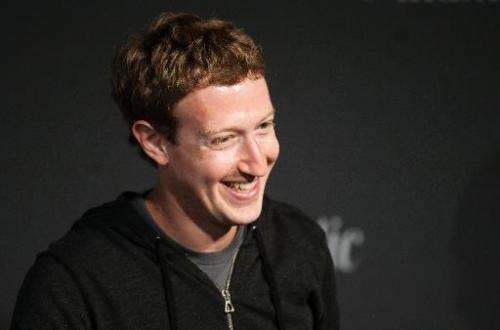
Zuckerberg has become a high-profile member of the tech community, establishing a Washington lobby group called FWD.us working on immigration and education reforms.
His net worth was estimated by Forbes magazine at $19 billion as of September, making him the 20th richest in the United States.
But with the recent jump in Facebook value, Zuckerberg's net worth has shot up to $29.7 billion, according to the market intelligence firm Wealth-X.
He and his wife Priscilla Chan have been active philanthropists, donating more than $1 billion to various causes, including a Silicon Valley foundation and public schools in New Jersey.
Despite his fame and fortune, Zuckerberg is still known for wearing hooded sweatshirts.
Chris Hughes
The 30-year-old Hughes, who graduated from Harvard in 2006, gained notoriety for heading the social media efforts of Barack Obama's 2008 presidential campaign, a key factor in the race.
In 2012, Hughes purchased the magazine The New Republic "to help build a future for substantive journalism in a digital age," according to the website of the magazine, where he is publisher and editor in chief. Hughes also runs a venture capital fund and a nonprofit social network service.
Eduardo Saverin
The 31-year-old Brazilian American gave up his US citizenship and moved to Singapore before Facebook's public offering, a move that likely saved him hundreds of millions of dollars in taxes.
He told a business conference last year that he plans to remain in Asia and hopes to make an impact as a technology investor. Forbes lists his net worth at $2.65 billion as of August, making him the seventh-richest person in Singapore.
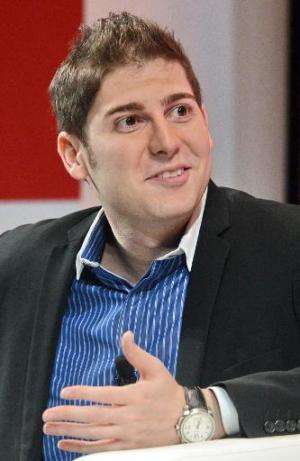
Saverin's role was famously portrayed in the 2010 film "The Social Network", in which he started out as a close friend of Zuckerberg and provided initial funds for the startup before they had an acrimonious split.
Dustin Moskovitz
Like Zuckerberg, Moskovitz is 29 and dropped out before finishing Harvard.
In 2008, he left Facebook to form his own company, a Web and mobile application called Asana aimed at fostering teamwork without email. His net worth is estimated by Forbes at $5.2 billion, based on his Facebook stake.
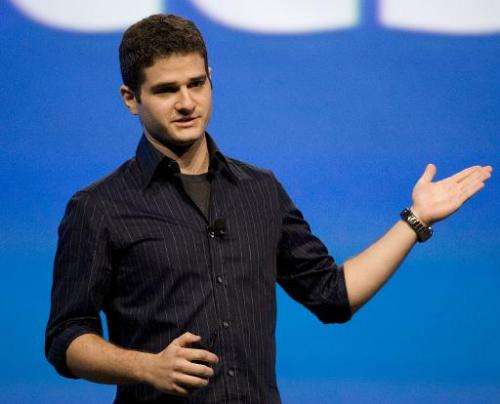
Winklevoss twins
Although not among the Facebook founders, twin brothers Tyler and Cameron Winklevoss claimed Zuckerberg stole their idea, and reached a 2008 settlement that got them and classmate Divya Narenda $20 million in cash and $45 million worth of stock.
They later sued unsuccessfully to undo that deal, seeking to gain more after Facebook expanded.
The twins, former Olympic rowers sometimes mockingly dubbed "the Winklevi," used the funds to launch their own venture capital efforts.
Last year, they filed a plan for an initial public offering for a Winklevoss Bitcoin Trust to allow investors to gain access to the virtual currency.
Sean Parker
He was not a Harvard classmate, but Parker, a founder of the original music-sharing site Napster, befriended Zuckerberg and became a mentor and adviser to the fledgling company.
Parker was the founding president of Facebook in 2004 and brought in one of the company's first big investors, Peter Thiel.
According to some accounts, Parker recognized the potential for Facebook to have a big impact.
Now 34, Parker later joined Thiel as a managing partner at The Founders Fund, a venture capital investment firm.
© 2014 AFP




















